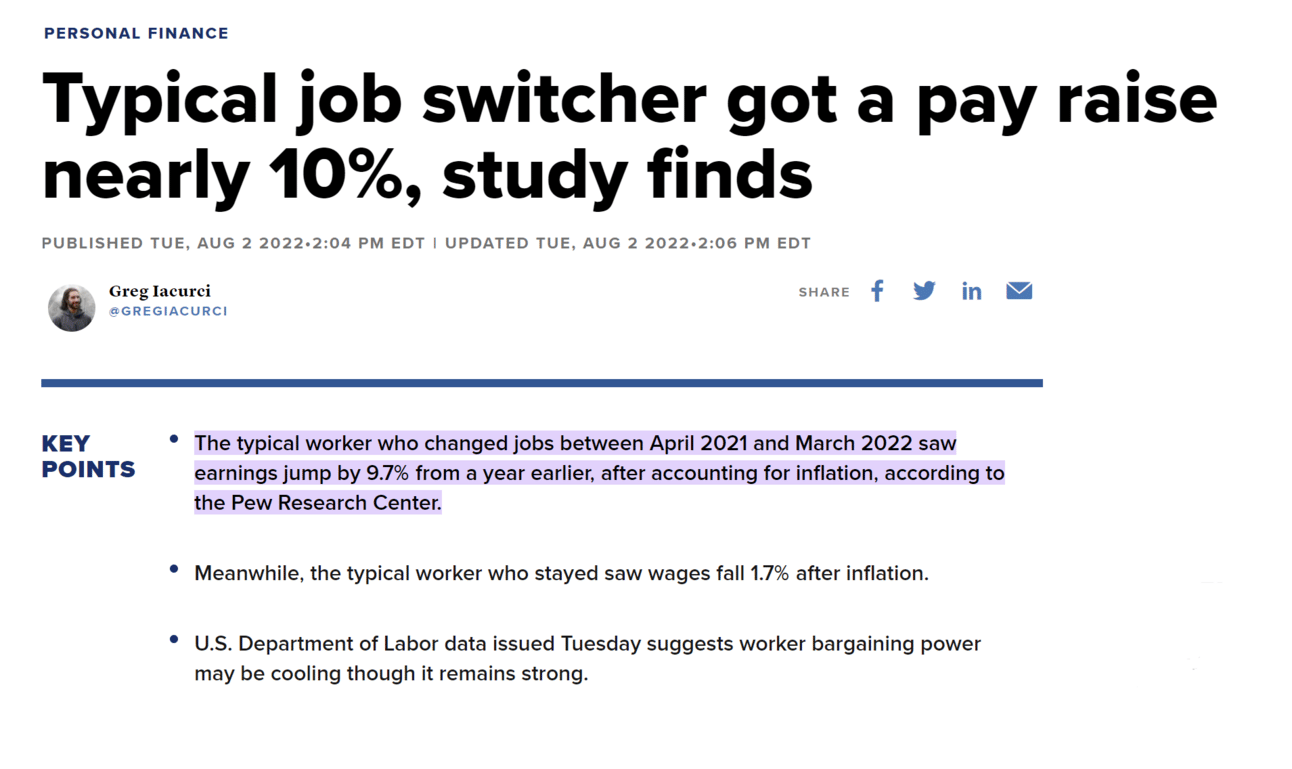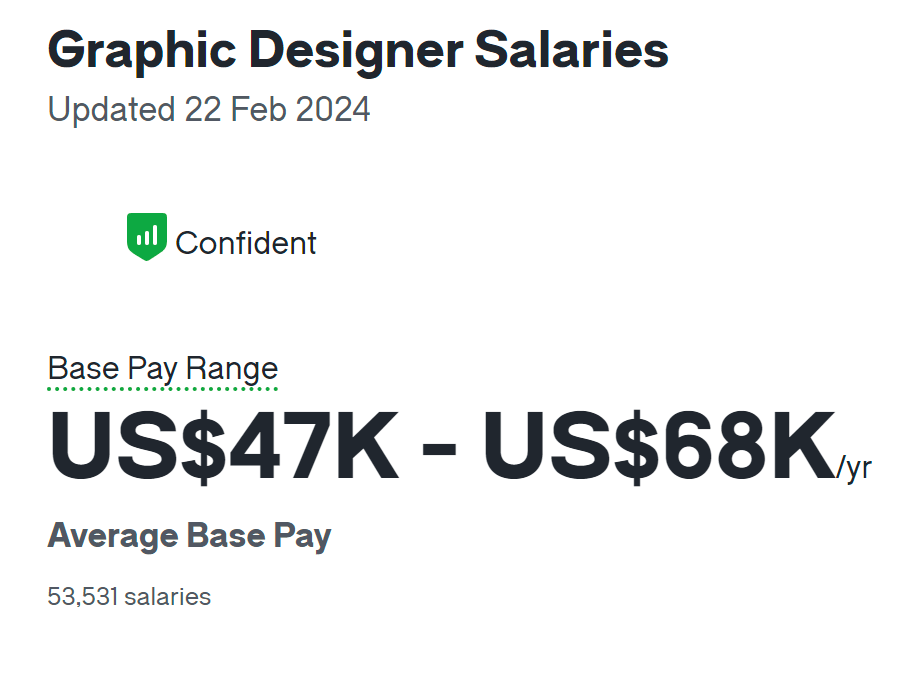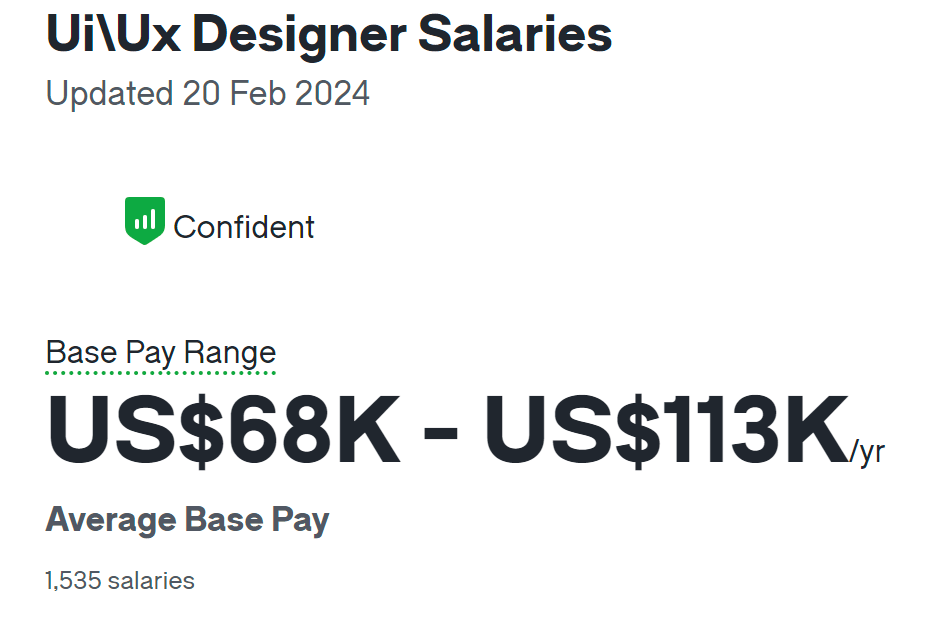- Paulo's Newsletter
- Posts
- How I tripled my salary, and how you can too!
How I tripled my salary, and how you can too!
Before reading, I would like to stress, this isn’t a get-rich-quick scheme, or a quick trick you could do. This does require patience, long-term thinking, and doing the work day in and day out.
As I’m sure you may be aware, UK wages are criminally low, especially when compared to wages in other comparable countries, despite the very high cost of living. Many people in the country are experiencing financial strain, particularly as inflation and energy costs have significantly increased in the last two years.
In addition to that, we are now in a recession. Making the most of your ability to earn income will be key as we navigate this time as a country. The labor market is currently very tight, meaning unemployment is very low and even though we’ve seen vacancies fall in Dec 23’, it’s still an incredibly competitive market leading to increased wages for new hires, note wages aren’t increasing that much for existing employees. Most of the wage growth recorded is being driven by employees negotiating a higher salary elsewhere.
This data from the Pew Research Center further validates my points. In real terms (including inflation), moving to a new employer provides you with, on average, 9.7% wage growth, whilst staying with the same employer resulted in -1.7% wage growth in 2022. I’d wager largely due to wages not matching inflation increase. Granted this is US data; however, it’s very similar in the UK.

I’ll go into this a lot more during the post.
This post is about how I, but more importantly, how most people can significantly increase their income by carefully and thoughtfully planning their career trajectory.
I see a few different ways to do this, and quite frankly, they all involve changing jobs. I’ll leave it up to you to decide whether that’s something you’re willing to do. The reason for this is that outside of very few roles such as banking, law, consulting, accounting, your future earnings if you stay in a particular company is very opaque. You’re often going to get paid less than colleagues who transferred into that role and you’re not in a great negotiating position unless you essentially threaten to leave for another offer.
The mistake I see so many people make is that when charting their career path, they don’t think about things from first principles. Let me explain what I mean by that. If you’re a junior-level graphic designer, most people will assume that the next step is to go mid-level, and then senior, and then perhaps manage a team or department. You’re capped at how much you’re likely to earn in those roles, but it’s a well-trodden path that many before you, and after you, will tread.
Maybe you move around in the same roles, which can be beneficial to get pay rises to market rates; however, you may not be paid what you’re ultimately worth when considering what your core skill sets are. You should always seek to be paid for your skill set not what the limitations of a company or industry allows.
Let’s go through an example, the average salary for a senior graphic designer is $70k; however, for a senior UI designer, it's $140k (source glassdoor). Both roles will likely take the same time to become senior in; however, one will pay you a lot more at the end and along the way. Yes, you'd likely need some training or certification to allow you to work in the new industry, but it will be well worth it. Your skillset is ultimately the same, design however depending on how you choose to apply this skillset the results can be quite different.
Just as an example, please see the average salary from Glassdoor 2024 for both roles.

Vs

If you’re reading this and think, well, this is very obvious, it’s actually not that obvious to most people, and they wouldn’t do what it takes to make the transition.
This is roughly what I was thinking about in 2015-2017. Without going into a great deal of detail about my personal life, I work in sales. I have worked in sales since I left university, largely because it was the first job I could find. It ended up paying quite well, and quite frankly, I was not qualified to do much else. I was selling in an industry where I could see the writing on the wall. The cost of acquiring customers was increasing, new regulations meant that companies couldn’t generate as much margin from those customers as they previously could, and the number of competitors was increasing daily due to technological advancement, meaning almost anyone with $20-30k could open up a competitor in outside of the UK and have a much lower cost and operating base.
The biggest barrier to me personally was that there was a cap for what a company was willing t+o pay for someone in my role, and I couldn’t see myself buying a home and raising a family on that base salary because mortgage affordability is largely done on the base salary. Commission payments are typically counted as 25% of that, so for example, if you earned $100,000, with $50,000 in base salary and $50,000 in commission, they’d view your salary as $62,500, as they would only count on 25% of your regular commission payments.
What I did
I had spent the last 5-6 years invested in this industry. I had built up a large network. I was extremely comfortable selling this product, had a great reputation, and knew I had to leave because it didn’t take a genius to work out that there was a natural ceiling, and to be paid what I believed I was worth, I would have to move.
So, very similar to the example of the graphic designer, I thought about what my core skill sets is. I was very good at sales. I then searched for “best-paid sales careers” or something to that effect, to which I came across corporate technology and SaaS sales, which have a much higher base salary, commission structure, but also much more secure. They have many more natural “moats” and, more importantly for me, would routinely offer someone with 5-7yrs of experience with a salary that was 3X what I was currently on. In addition to that, it was extremely achievable. There were hundreds of companies hiring for this role, this skillset, so it seemed very realistic, and big enough that I could move around every 4-5 years or so in a 30-40yr career.
I very quickly realized after going on a few interviews that the transition would be a lot more difficult than I first thought and would need to do it in stages. I had to transform my experience of selling from selling to individuals or small companies at best on a 2-3 week time horizon, to selling to large organizations contracts worth hundreds of thousands on a much longer 3-6 month time horizon.
One thing that really helped me was staying in the same career (sales); same industry (finance) but selling something very different in that industry to a very different customer base. However, I was able to make use of knowledge which I already had. Give myself the experience, and make myself attractive to recruiters to then fully move to pure technology sales a few years down the line should I wish to, where the opportunities for equity, higher salaries, financial-related benefits such as car allowance and/or fully remote are more widely expected representing an opportunity to increase my salary / salary package again. To give you an example if I was to take that option I would be 5X my previous role not just 3X.
It’s hard to say if this is easy to do for your career; however, if you think creatively about it, I’m sure there are similar moves you can make. This also doesn’t take into account entrepreneurship where the potential is limitless.
If you are thinking of taking this advice, Here are some of the things I considered and you should too.
Same Role, Same Industry, Different Company
It’s imperative to have a very clear view even if you do not want to act on it for now what your role, in your industry pays for your level of seniority. I would go further to say in different industries as well but that’s for later.
A very quick win is moving to another company for a 20-30% pay increase. It’s very unlikely you’re getting paid at the top of the salary range for your role, not just for your company but for the market. Moving companies within a similar industry for more money / benefits in a quick win, and can make a marked improvement to your quality of life. It also doesn’t require much from you.
More Senior Role, Same Industry, Different Company
What I typically recommend is if your company is not able to pay you what you want to be paid, to negotiate a “title increase” for advancement and to gain more experience, I wouldn’t particularly care if it came with a salary increase or not but you want to gain that experience in a safe place (company you’re used to), ensure you’re not overwhelmed by the work and then in 6-12 months move to another company with that new “senior” experience level. When companies check your reference they only report your last “official role title” with them. For example if you joined, spent 2 years as a junior graphic designer, then 6 months as a mid-level graphic designer they will only say you were a mid-level graphic designer and were employed by them for X years meaning you could just summarize in your CV that you were a mid-level graphic designer at X company for 2.5yrs. In this example you don’t just benefit from getting paid at the higher end of the “junior graphic designer” range but at the middle to top of the “mid-level graphic designer range” based on your negotiation skills, which could represent an even bigger jump likely close to double your current salary.
Same Role, Different Industry, Different Company
Another thing that’s extremely important is to understand what your role could command in another industry, this isn’t just “get into tech” because there are many other industries which may pay more than your industry vs “tech” based on demand. For example whilst not known as a great industry to be in the UK, it may be that you can earn markedly more in say healthcare vs commercial real estate or technology as there is a very clear wane in need of hiring due to the current economic landscape.
It’s important to know what industries are doing well and which ones are struggling (read the FT every now and again) but also knowing what you could command in each industry and how that’s changing. I recommend becoming quite friendly with various different recruiters through LinkedIn; keeping the “open to roles” option open to regularly get recruiters reach out and offer you roles, this allows you to keep up to date with what companies/market are willing to offer. Same principles apply as above, you should be able to have a marked difference in how much you earn even if it’s a sideways move.
Strategically Thinking about Skillsets
As previously described I think this one of the key ways in which you’re going to generate the maximum amount your skillset allows. It’s hard to give clear examples as above because only you’d know your skillset, experience, etc however I really recommend for you to view your skillsets through first principles and have a very clear vision of what the very top end of what you can realistically achieve is.
I truly believe that through thinking in this manner even someone with very minimal skills could build on those over a short to mid period of time move to a whole new career.
I really hope this wasn’t just ramblings and telling you what you already know, and that it was helpful in some way.